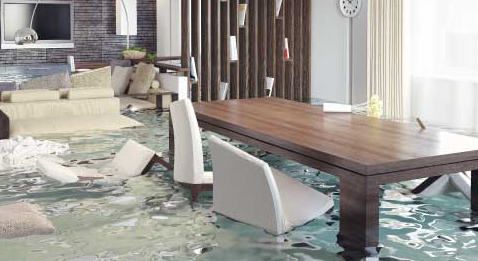After a Storm, How to Stay Safe
 Keep an ear out for advisories and other instructions on the radio.
Keep an ear out for advisories and other instructions on the radio.It is not safe to go outside until it has been deemed safe.
Keep a safe distance from downed power lines and stay away from standing water or metal objects near them.
Buildings that have caused structural damage should be evacuated and not entered.
Avoid weakened trees and branches that are hanging or broken.
In flood waters, do not swim or wade.
Keep an eye on your neighbors, particularly the elderly and disabled.
Snakes and other wild animals should be avoided.
If you smell petrol, turn off the gas at the meter.
If it's not absolutely important, don't drive.
If you must drive, keep an eye out for weakened roads and bridges.
Driving through flooded streets or bridges is not recommended.
Indoors, avoid using candles or other open flames.
Always have a fire extinguisher on hand.
Battery-operated smoke and CO detectors should be tested.
Before flushing the toilets, make sure your sewer system is operational.
When taking your pet outside, keep them inside and use a leash.
Generators should be operated outside, away from windows and doors.
Do not consume perishable food that has reached a temperature of more than 40 degrees Fahrenheit.
After a Storm, It's Time to Clean Up
Climbing ladders and operating on roofs should be done with extreme caution.
When cutting trees or branches with a chainsaw, use extreme caution.
To avoid more water damage, cover leaking roofs before the next storm.
Remove any wet rugs or carpeting from the floor.
If you have water damage in your house, open the windows and switch on the fans.
After a Storm, Dealing with Insurance Companies
Before you clean up, take pictures or video of the damage to your home and make a list of the things that were damaged.
Before calling the insurance provider, read the homeowner's insurance policy carefully to see what is and isn't covered.
If you're having trouble reaching out to the insurance provider, try a variety of methods, including phone calls, emails, faxes, and letters.
Having Repairs Done by a Contractor
Before hiring a contactor, except for emergency repairs, consult with your insurance provider.
Avoid hiring “fly-by-night” contractors that aren't local.
For a list of trustworthy contractors, contact your local homebuilder's association.
Have multiple written bids and make sure you understand what each one covers in terms of the work to be done and the materials to be used.
After a hurricane, trustworthy contractors can be swamped with jobs, so be persistent but careful.





